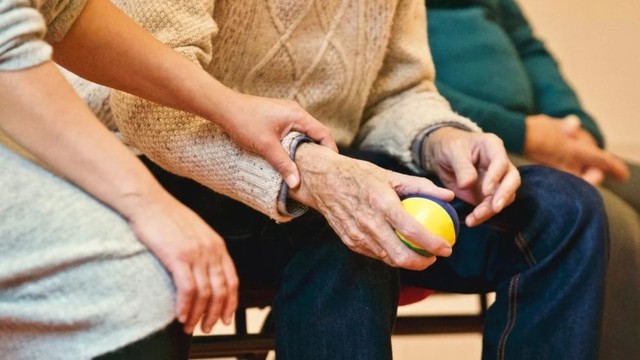To achieve reconciliation with our heart, it is essential to make a key and indispensable movement to attain inner peace. Explore in this text the path to carry out a commitment of trust through this expression of belief.

"Be kind and compassionate to one another, forgiving each other, just as in Christ God forgave you." Ephesians 4:32
Forgiveness represents a fundamental element in our faith, where we are taught to extend grace to our brothers and sisters as an essential part of our spiritual life. However, how can we grant this grace when we have been deeply hurt? How do we take the first step toward healing?
This expression of love and compassion can prove challenging to practice, especially when we have experienced intense and distressing pain. Nevertheless, it is important to remember that forgiving does not mean forgetting what happened nor minimizing the severity of the harm received. On the contrary, this decision allows us to free ourselves from anger and bitterness, opening the way toward restoration and inner peace.
In our journey, the Scriptures constantly emphasize the importance of showing mercy, reminding us that God Himself has granted us complete forgiveness through His Son Jesus Christ. This principle not only benefits the one who offended us, but also frees us from the emotional chains that prevent us from living fully in the Spirit. Let us think of a believer who has experienced betrayal in their church; by choosing to forgive, they not only heal community relationships, but also reflect the heart of God, becoming a powerful testimony to the world.
Furthermore, we know from biblical teaching that holding a grudge can hinder our prayer and spiritual growth, as illustrated by Jesus' parables. Therefore, embracing forgiveness becomes a pillar for our maturity in faith, allowing the Holy Spirit to bring deep healing to our soul.

"Bear with each other and forgive one another if any of you has a grievance against someone. Forgive as the Lord forgave you." Colossians 3:13
One of the first steps toward forgiveness consists of recognizing the emotions of pain and resentment that we carry in our heart. Often, when someone hurts us, our natural reaction is to get angry and feel justified in that anger. But if we truly desire to forgive, we must allow ourselves to feel our pain and sadness. By recognizing these feelings, we can begin to process them and release them.
The next step involves seeking God in prayer and asking for His guidance. Prayer is a powerful means to connect with divine grace and mercy, and it helps us find the necessary strength to forgive. Ask the Lord to help you in your healing and in the process of forgiving the one who has hurt you. Frequently, developing the will to forgive is a gradual process, and prayer can be an invaluable tool during this journey.
In our daily life, many people have found comfort by meditating on the cross, where Christ forgave even those who crucified Him. This reflection not only inspires us, but also gives us supernatural power to overcome our personal limitations. Likewise, sharing with a spiritual mentor or prayer group can provide us with the necessary support, reminding us that we are not alone in this internal struggle.

"For if you forgive other people when they sin against you, your heavenly Father will also forgive you. But if you do not forgive others their sins, your Father will not forgive you your sins." Matthew 6:14-15
Another important step is to develop understanding and compassion toward the other person. Try to understand the situation from their perspective. What factors might have led that person to act in that way? How would you feel if you were in their place?
Cultivating understanding and compassion helps us see the situation with greater clarity and allows us to recognize in the other a human being with flaws and weaknesses, just like ourselves.
After having worked on your emotions and sought God's direction, the time comes to take the initial step toward forgiveness. This can be difficult, especially if the other person has not shown repentance. But even if that person is not willing to apologize, you can take the initiative to forgive them in your heart. It may be helpful to write a letter or have a conversation where you express your forgiveness and your desire to free yourself from the pain and bitterness.
In communities, testimonies abound of how a simple act of dialogue has transformed broken relationships, leading to mutual restoration. Let us remember that Jesus taught us to forgive seventy times seven, emphasizing the unlimited nature of divine grace.

"Do not judge, and you will not be judged. Do not condemn, and you will not be condemned. Forgive, and you will be forgiven." Luke 6:37
Finally, it is important to remember that forgiveness is a continuous process. Even when we have forgiven someone, it is possible that feelings of pain or resentment may occasionally resurface.
It is essential to understand that these feelings are normal, and that we can return to prayer and the cultivation of understanding and compassion to help us move forward.
Let us leave behind the emotions of anger and bitterness, and allow acts of restoration to manifest in order to heal the wounds of our heart and those of our brothers and sisters. Let us be receptive to receiving and granting both repentance and forgiveness.